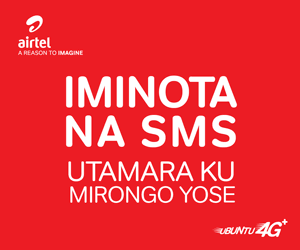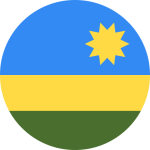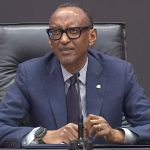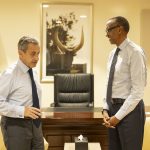Members of the M23 rebel movement are Congolese nationals who have been denied their rights in their own country and every rightful thinking person should support them.
President Paul Kagame told local and international journalists during a press conference in the capital Kigali. He was responding to a question posed to him by a foreign journalist asking him whether Rwanda still denies it support to the M23 rebels.
“We have 100,000 Congolese Tutsi who have been living in camps in Rwanda. They are being persecuted back home and forced to flee. So M23 is born out of that situation,” President Kagame told attentive journalists.
Kagame also wondered why Rwanda was frequently being accused of supporting M23, “those who accuse us I would ask why they don’t support m23.”
“What is the problem of M23 should be the question everyone should be asking. Why have they taken up arms to fight in their own country,” Kagame noted.
Kagame said that the M23 is an organisation born in DRC. “These are Congolese and you will even hear DRC admitting they are citizens there. Why do they exist? Because they have been denied their rights as citizens of the DRC? They are being referred to as the Tutsis of Rwanda.”
President Kagame also told the journalists that the DRC crisis is a result of cheap and primitive politics which front the ideology of ethnic divisionism, tribalism, religious chauvinism and various forms of discrimination.
He said Rwanda has had a troublesome share of the primitive politics in the past which led to the horrendous 1994 genocide against Tutsi that claimed more than a million lives.
“I could not find a better word to describe what was happening in Rwanda where ethnic division was the basis of governance, it is simply primitive politics and this is also seen on a wider scale in the region,” Kagame said.
Asked about Rwanda’s relations with South Africa on the DRC crisis, Kagame revealed that he had a marathon discussion with South African leader Cyril Ramaphosa.
“We couldn’t have spent several hours in a meeting without talking about the DRC crisis. We had a very good discussion and understanding of the situation and the best ways we can work together to resolve the issues. I was satisfied.”
The M23 has long insisted that its political demands be addressed as articulated in the agreement that they signed in December 2013 with the Congolese government in the wake of a military defeat that prompted its commanders and troops to flee to Uganda and Rwanda.
These demands centre on guaranteeing a safe return to the DRC for its membership and ending the discrimination and insecurity of Congolese Tutsi, including by promoting the return of Congolese Tutsi refugees from neighbouring countries.
In 2017, the lack of implementation of this agreement prompted the Uganda-based part of the group, led by Sultani Makenga, to return to the DRC.
Previously M23 said, “One should know that we are Congolese; the M23 movement is a Congolese movement. And we have rights, like the rest of the Congolese in this country.”
“However, when it comes to the protection of the people, the M23 will spare no effort to do so. The DRC government has failed to protect its citizens,” the M23 said.
“We ask for a direct dialogue with the DRC government to sort out this ongoing crisis politically,” the group said.








